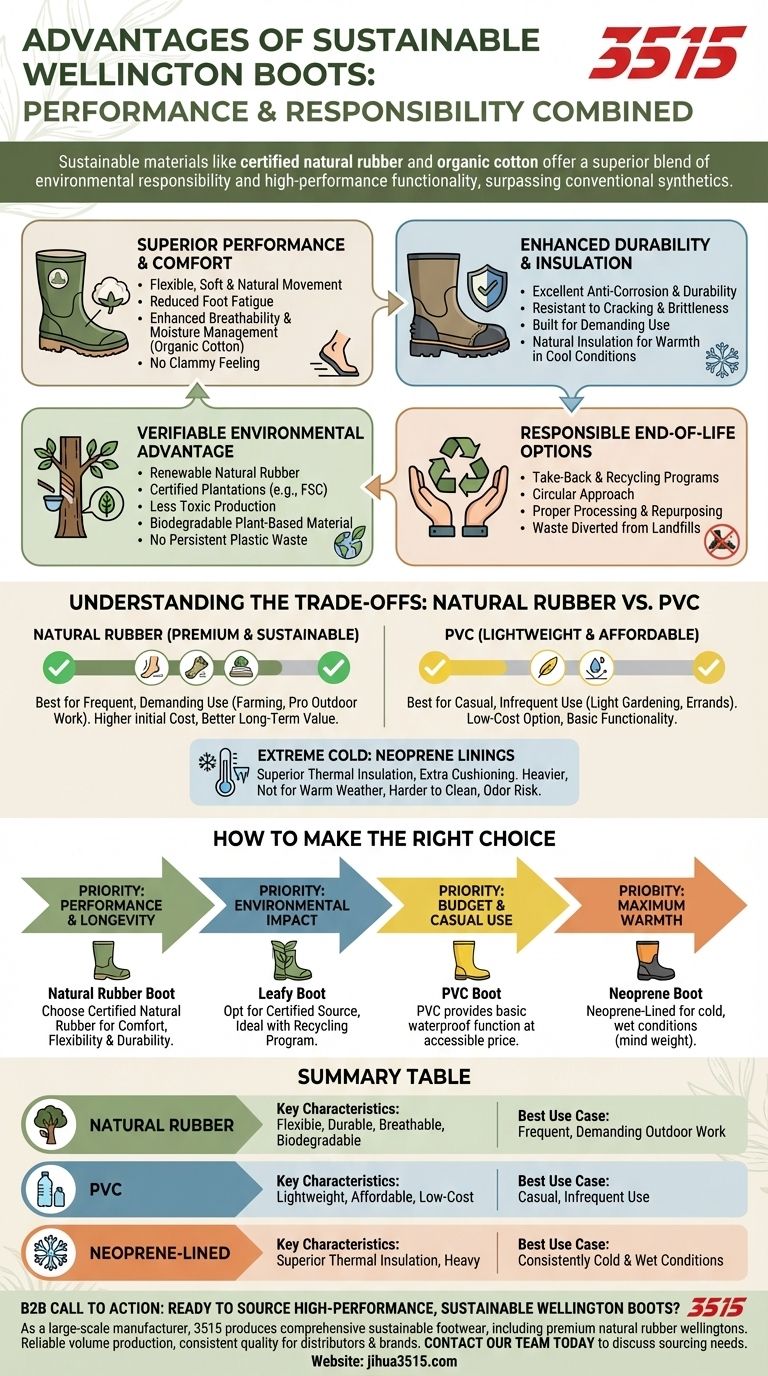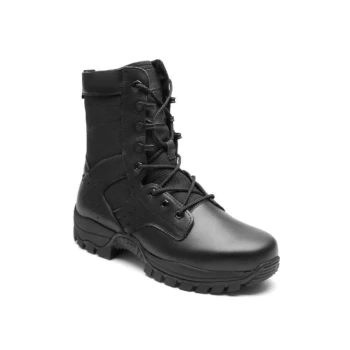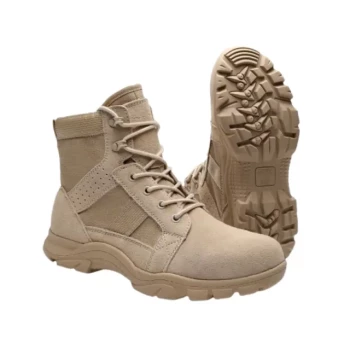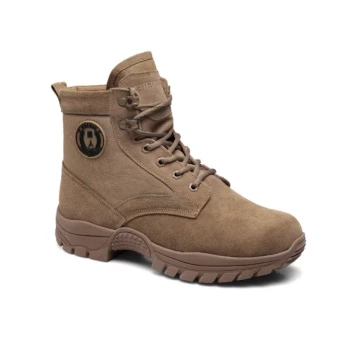At their core, wellington boots made from sustainable materials offer a superior combination of environmental responsibility and high-performance functionality. These boots leverage materials like certified natural rubber and organic cotton to provide enhanced comfort, flexibility, and durability that often surpasses conventional synthetic alternatives.
The decision to choose a sustainable wellington boot is not just an ethical one; it is a practical investment in a higher-quality product designed for better performance and a longer lifespan.

The Core Benefits of Sustainable Materials
Sustainable wellingtons, most commonly made from natural rubber, provide a distinct set of advantages over their mass-produced PVC (polyvinyl chloride) counterparts. These benefits impact everything from daily comfort to long-term environmental footprint.
Superior Performance and Comfort
Natural rubber is inherently more flexible and soft than rigid synthetic plastics. This results in a boot that moves more naturally with your foot, reducing fatigue during long periods of wear.
Paired with linings made from materials like organic cotton, these boots also offer significantly better breathability. This helps regulate temperature and manage moisture, preventing the clammy, uncomfortable feeling common in non-breathable boots.
Enhanced Durability and Insulation
Unlike cheaper plastics that can become brittle and crack, natural rubber possesses excellent anti-corrosion properties and durability. High-quality boots often feature reinforced toe areas and are built to withstand demanding use.
Natural rubber also provides a degree of insulation, keeping feet warmer in cool conditions. This makes it a more versatile, all-season material compared to uninsulated PVC.
A Verifiable Environmental Advantage
The primary sustainable material, natural rubber, is a renewable resource harvested from trees. When sourced from certified plantations (like those certified by the Forest Stewardship Council), it ensures responsible forest management.
Furthermore, the production process for natural rubber is less toxic than that for synthetic materials. As a plant-based material, it is also biodegradable at the end of its life, unlike plastic which persists in landfills indefinitely.
Responsible End-of-Life Options
Leading manufacturers of sustainable wellingtons often provide take-back or recycling programs. This circular approach ensures that old boots are properly processed and repurposed, diverting waste from landfills.
Understanding the Trade-offs: Natural Rubber vs. PVC
Choosing the right boot requires an objective look at the most common materials and their specific strengths. The best choice depends entirely on your intended use and priorities.
The Case for Natural Rubber
Natural rubber is the premium choice for performance and sustainability. Its flexibility, durability, and comfort make it ideal for frequent, demanding activities like farming, extensive walking, or professional outdoor work. While the initial cost is higher, the extended lifespan often makes it a better long-term value.
The Case for PVC
PVC is a lightweight and highly affordable synthetic plastic. These boots are easy to produce and maintain, making them a popular low-cost option. They are perfectly suitable for casual, infrequent use such as light gardening or occasional rainy-day errands where high performance is not a priority.
The Question of Extreme Cold: Neoprene Linings
For work in consistently cold and wet conditions, neoprene-lined boots offer superior thermal insulation. The material traps heat effectively and provides extra cushioning.
However, this specialization comes with trade-offs. Neoprene-lined boots are heavier, not suitable for warm weather, and cannot be easily washed, which can lead to odor buildup over time.
How to Make the Right Choice
Selecting the right wellington boot means matching the material's properties to your specific needs. An honest assessment of your usage is the most important step.
- If your primary focus is performance and longevity: Choose a boot made from certified natural rubber for its superior comfort, flexibility, and durability in demanding conditions.
- If your primary focus is environmental impact: Opt for natural rubber from a certified source, ideally from a brand that offers a recycling or take-back program.
- If your primary focus is budget and casual use: A PVC wellington provides basic waterproof functionality at an accessible price point for light, infrequent tasks.
- If your primary focus is maximum warmth: A neoprene-lined boot is the best choice for cold-weather environments, but be mindful of its weight and lack of breathability.
Ultimately, choosing the right wellington boot means aligning the material's inherent strengths with your specific performance needs and personal values.
Summary Table:
| Material | Key Characteristics | Best Use Case |
|---|---|---|
| Natural Rubber | Flexible, durable, breathable, biodegradable | Frequent, demanding outdoor work |
| PVC | Lightweight, affordable, low-cost | Casual, infrequent use |
| Neoprene-Lined | Superior thermal insulation, heavy | Consistently cold and wet conditions |
Ready to source high-performance, sustainable wellington boots?
As a large-scale manufacturer, 3515 produces a comprehensive range of footwear for distributors, brand owners, and bulk clients. Our production capabilities encompass all types of sustainable shoes and boots, including premium natural rubber wellingtons designed for superior comfort and durability.
We can help you meet the growing demand for eco-friendly footwear with reliable volume production and consistent quality.
Contact our team today to discuss your sourcing needs and explore our catalog.
Visual Guide

Related Products
- Factory Direct Wholesale Rain Boots Durable Waterproof & Fully Customizable
- Factory-Direct Wholesale Canvas Boots with High-Traction Rubber Soles
- Wholesale Leather Work Boots with Customizable Wedge Sole for Brands
- Durable Leather Tactical Boots Wholesale & Custom Manufacturing for Brands
- Durable Goodyear Welt Leather Work Boots for Wholesale & Private Label
People Also Ask
- What is the overall recommendation for choosing rain boot materials? A Guide to Rubber vs. PVC
- What are the advantages of handcrafted short Wellington boots? Superior Comfort & Versatility for Everyday Wear
- What role do motorcycle boots play in protecting riders from the elements? Essential Safety Beyond Weather
- What are the key considerations when choosing wellies for babies and toddlers? Ensure Safety and Comfort for Active Play
- Can PVC and natural rubber be combined in boot manufacturing? Yes, as a cost-driven compromise.
- What causes white marks on rubber boots, and how can they be removed? A Guide to 'Blooming' & Boot Care
- What are some creative ways to repurpose old wellington boots? Give Your Old Boots a New Life
- What additional feature in wellies can enhance warmth? Choose the Right Lining for Ultimate Comfort



















